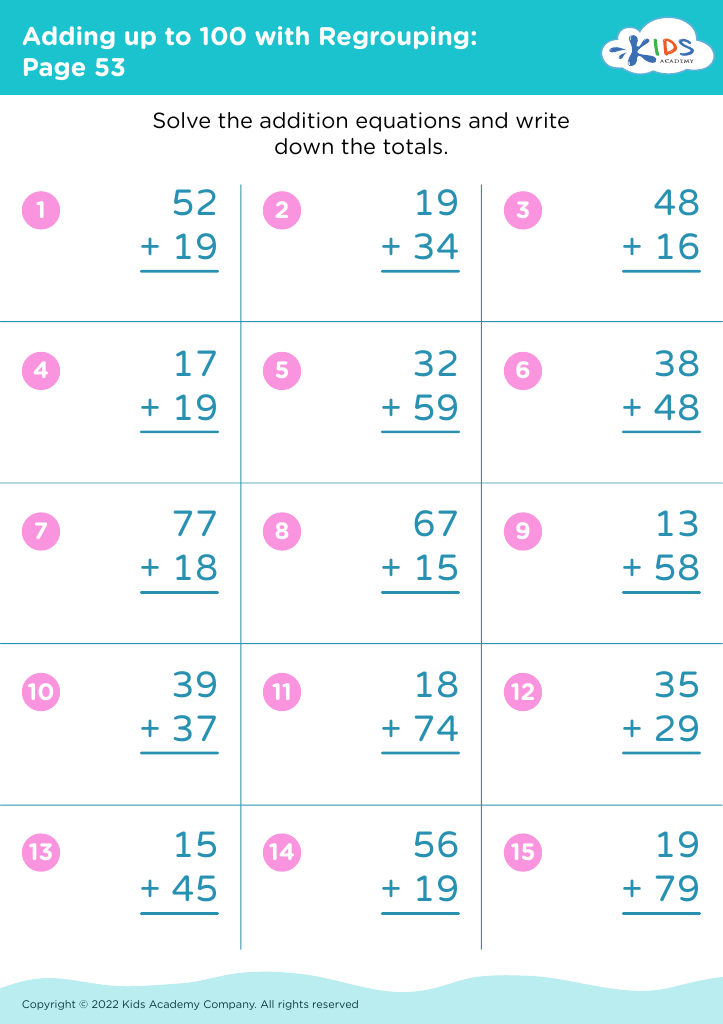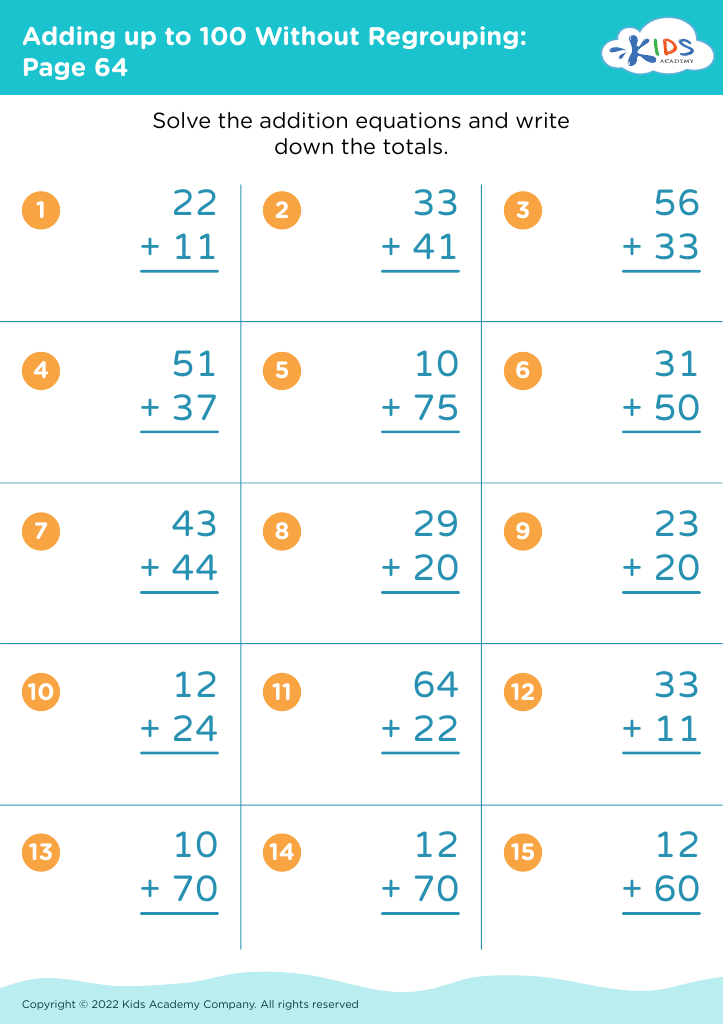Recognize patterns Adding up to 100 Worksheets for Ages 7-8
4 filtered results
-
From - To
Discover the joy of math with our "Recognize Patterns Adding up to 100 Worksheets" designed for ages 7-8 by Kids Academy! These engaging worksheets help young learners develop essential math skills by identifying and understanding patterns while adding up to 100. Perfect for both classroom and at-home learning, each worksheet offers fun, age-appropriate activities that reinforce addition techniques and enhance problem-solving abilities. By integrating pattern recognition, children will boost their confidence in math and build a strong foundation for future learning. Let your child excel in math and enjoy the process with our expertly crafted resources!
Recognizing patterns and mastering basic arithmetic, such as adding up to 100, are crucial skills for children aged 7-8. At this developmental stage, these abilities serve as fundamental building blocks for more advanced mathematical concepts. When children recognize patterns, they enhance their problem-solving skills and establish a logical framework for understanding mathematical relationships. This pattern recognition helps them predict future numerical sequences and identify errors in their computations, fostering a deeper understanding of numbers and operations.
Adding up to 100 is not merely about memorizing sums, but about grasping the concept of place value, understanding part-whole relationships, and developing mental math strategies. These skills are essential for more complex calculations encountered in higher grades. They also apply to real-world situations, such as handling money or measurements, which fosters practical life skills.
Teachers and parents who emphasize these areas ensure that children develop confidence in their math abilities. This confidence reduces anxiety associated with math problems and encourages a positive attitude towards learning. Additionally, success in early math skills is linked to better academic performance in other subjects as well. Therefore, paying attention to pattern recognition and arithmetic is an investment in a child’s overall educational growth and future success.










%20(1).jpg)












